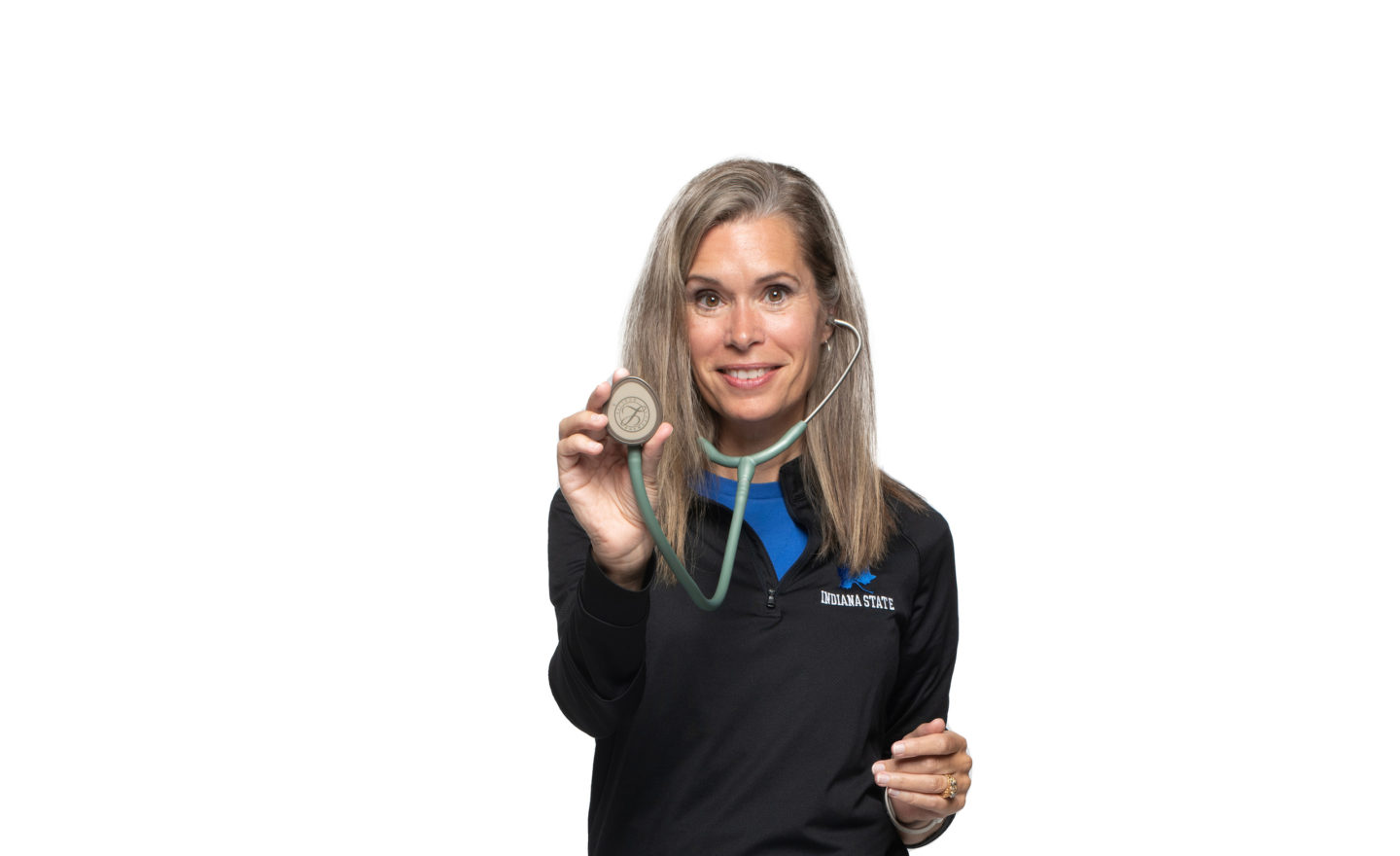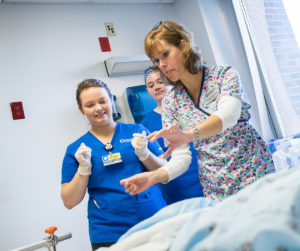
Emily Cannon
By Kasy Long
Sep 23, 2022
Dr. Emily Cannon didn’t always want to be a nurse. As a child, she watched her father work as a physician and her mother as a nurse. She thought she wanted a different career. By the time she was an undergraduate student, Cannon had developed other interests, mainly French and art history.
But everything changed during her father’s cancer diagnosis. Throughout his treatments, Cannon observed how his compassionate nurses cared for her father. It was an eye-opening, transformative experience. By then, she knew she couldn’t ignore the signs. Nursing was the right profession for her, after all.
Now Cannon is educating future nurses as an associate professor of nursing in the College of Health and Human Services at Indiana State University. She specializes in medical surgical nursing, infection control, acute care, emergency nursing, sepsis, and forensic nursing. Her past research has focused on autopsies, Post-Traumatic Stress Disorder (PTSD) treatment, and psychedelics. She incorporates these specialties into her teaching.

Indiana State’s nursing program is designed to prepare students for all aspects of nursing, including: pediatric care; surgical assistance; emergency room nursing; labor and delivery nursing; oncology care; and home care nursing. Indiana State’s faculty teaches it all.
Through the program, students are taught how to advocate for patients’ needs, how to acknowledge their questions, and how to ease their concerns. Students become leaders and coordinators. Through each course, they learn how to make a difference for patients from all walks of life and with every type of health profile.
“Our students are not only learning about one area of nursing. They’re exploring all perceptions of the profession and research areas they could specialize in,” Cannon explained.
And, with her various research interests, Cannon always looks for innovative ways to teach her students. Her classes include information about pharmacology, medical research, and assessing patients.
Cannon also assists students in Indiana State’s Honors College on specialized research projects. Many students are interested in nutrition and mental health. Others focus on infection prevention, PTSD treatment, emergency nursing, sepsis, and assisting victims of sexual assault. Cannon supports students on their thesis projects and she reviews ideas she wouldn’t have considered in her own research.
Throughout her teaching, it’s impossible for Cannon not to be excited about her students’ research and how she can learn right along with them.

The School of Nursing enriches students’ learning experience with immersive, hands-on programs. In Cannon’s philosophy, students learn best with visual displays, through story examples of real-life nursing experiences, and by asking each other questions.
Cannon described this experiential learning as ‘breadcrumbs’—a process in which nursing professors provide initial information and resources, then step aside to allow students to discover more as independent learners.
“I’ve been passionate about discussing compassion fatigue in my classes,” Cannon explained.
Compassion fatigue affects healthcare professionals who lose empathy for their patients. These professionals are overwhelmed by stress and feel “burnt out.” They may go through the motions of caregiving but without their former passion or empathy.
In the classroom, the professor draws on her own real-world nursing experiences to teach. Before transitioning to teaching, she worked as a nurse at Union Hospital in Terre Haute, where she worked as a medical surgical float nurse and later as an Infection Control Nurse specialized in infection control, sepsis, and shock.
While participating in engaging discussions and clinical experiences, Cannon’s students are eager to learn new concepts and research ideas. For the 2022-23 academic year, Cannon is exploring topics on holistic nursing. Her students will learn how nurses play a significant role in the body, mind, and nutrition of patients they might care for in their careers.
Students enjoy numerous resources and activities in the School of Nursing’s Learning Resource Center. An interactive learning environment, the center provides realistic clinical experiences for students to learn necessary skills they will apply in their professions.
Because the School of Nursing relies on individualized, experiential learning for students, the center bridges the gap between classroom learning and real-world nursing practice. Imagine working with lifelike models of human anatomy to teach various procedural skills, including airway management, intravenous line (IV) procedures, nasogastric (NG) tube placement, and lumbar punctures.
Other simulations provide students with realistic nursing scenarios. Along the way, professors step back and watch their students solve problems on their own.
“They’re comfortable coming to us for help, but we enjoy seeing them figure out solutions. They work together,” said Cannon.

These learning experiences are all part of students’ journey to professional nursing careers. Throughout the program, Indiana State students rely on a close-knit community of supporters who are rooting for them. With the help of compassionate professors, friends and peers who all learn together, students know they always have a champion in their corner.
Learning is a lifelong reward, and nurses never cease learning how to become better advocates, leaders, and change agents for patients. With compassion and dedication, Cannon supports her students as they evolve into confident, dedicated caregivers.
That’s why healing hands begin at Indiana State University. Because caring nurses wear Blue!
Visit http://indstate.edu/health/department/son to learn more about School of Nursing programs at Indiana State.


